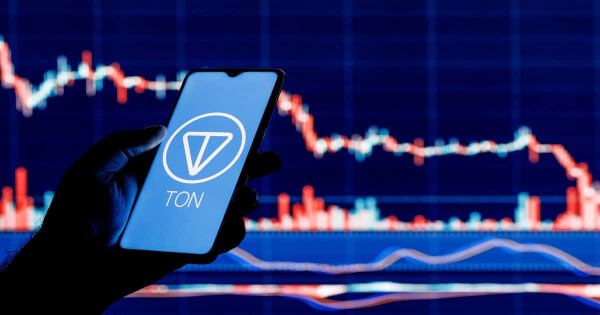It might be imagined that the concept of a financial system that cannot be controlled by a central bank would be anathema to China’s ruling party, but decentralisation is not an uncommon feature of Chinese society.
A paper published in the China Economic Review in 2020 referred to that country’s unique blend of political centralisation and decentralisation of economic power and responsibility, noting that even after the centralising reforms in the last three decades, the fiscal system is largely decentralised.
For a certain subset of cryptocurrency users, decentralised finance is filling the gap for cryptocurrency services in China, although there is a major limitation in the shape of the efficiency and liquidity of centralised exchanges.
So while volumes at decentralised exchanges continue to increase, especially in the wake of major centralised finance exchange collapses, Zennon Kapron, the Managing Director of Asian fintech strategic consulting firm Kapronasia, stated there are no decentralised exchanges that can match the liquidity and depth of trading that centralised exchanges provide, and nor will they in the near future.
Angel Zhong, a senior lecturer in finance at RMIT School of Economics and a trading trends expert, agrees that decentralised finance is to at least some extent filling the gap left by China’s crackdown on centralised cryptocurrency exchanges.
Switzerland's biggest bank, UBS, has agreed to buy its rival Credit Suisse in an emergency rescue deal aimed at stemming financial market panic. Hear what RMIT financial expert @AngelZhong17has to say about the merge and its effects. https://t.co/YBr0Bj32lH
— RMIT University (@RMIT) March 21, 2023
“However, it is important to note that the Chinese government's regulations may also extend to DeFi activities,” she added. “It has been monitoring DeFi projects and activities within China and the regulatory landscape is rapidly evolving.”
Users of DeFi platforms often resist the implementation of KYC standards, citing privacy concerns. The lack of KYC protocols in DeFi raises the risk of non-compliance with anti-money laundering and countering the financing of terrorism (AML/CTF) obligations.
“There is scope for regulation in China, in particular with a strong focus on developing responsibilities about KYC,” Zhong mentioned. “China could also use its firewall to ban access to DeFi wallets.”
The ability to regulate crypto has always been in the on- and off-ramps, namely the banks and payment providers. China has approached this in a few different ways in the past, from encouraging banks to avoid doing business with crypto exchanges to completely banning them from doing so.
“The challenge with DeFi is of course the fact that there may not be any ramps for the regulators to regulate,” Kapron explained. “With no traditional fiat rails and an often amorphous and complex structure, DeFi exchanges might be the toughest challenge yet for the Chinese government and regulators.”
The Shanghai government’s investment in the blockchain firm, Conflux was seen by many as an attempt to build its own version of DeFi. Conflux Network's Co-Founder, YuanJie Zhang, noted that DeFi teams in China either maintain a relatively low profile or rebrand themselves as headquartered in Singapore or Hong Kong.
“Their founders mostly live overseas and handle investors, partnership and listing preparations, while their coders work remotely (and anonymously) in second tier cities,” he said. “Chinese crypto players trust mainstream DeFi rather than Chinese-founded DeFi protocols given the risk of rug pulls and hacks – although Hong Kong’s crypto policy may change the dynamics.”
In a keynote speech at the Hong Kong Web3 festival in mid-April, Keith Choy, the interim Head of Intermediaries at the Securities and Futures Commission (SFC) of Hong Kong noted that decentralised finance (DeFi) presented a number of regulatory issues.
He referred to financial stability implications arising from the interconnectedness of DeFi and virtual asset ecosystems, as well as between DeFi and the traditional financial world, and the limited transparency of these interconnections. Choy also touched on DeFi’s vulnerability to market integrity issues, such as price oracle manipulation or front-running transactions.
Then, there is the issue of who should be held accountable when things go wrong. The SFC’s view is that as long as a DeFi activity falls within the scope of the securities and futures ordinance, it would be subject to the same regulatory requirements as a traditional financial activity.
1) China is more engaged with crypto than you may think. It's home to 30,000 registered blockchain companies and holds 84% of global blockchain patents. ????
— Dimitri Roumeliotis (@defiDimitri) June 17, 2023
Choy suggested that identifying the individuals who should be held accountable in DeFi may not be as difficult as imagined since some DeFi protocols can be controlled by a relatively small group of developers, operators or related parties. But, Zhang is less optimistic, suggesting that Hong Kong’s regulators will focus on regulated exchanges, stablecoins, and then crypto wallets. “The decentralised space takes more time to discuss and develop a framework for regulation,” he declared.
Zhang also downplays the likelihood of the Chinese government building its own decentralised finance network given the lack of consensus on infrastructure. “Many participants, policy makers and corporates are still in the consortium phase,” he added. “Conflux is the sole public chain admitted by the government in a different track, and Hong Kong will be an experiment where the DeFi ecosystem operates at arm's length to the Ethereum virtual machine (a core piece of Ethereum that helps power the blockchain and smart contracts) ecosystem.”
Others take a different view though, with Kapron suggesting the development of China's central bank digital currency (the e-CNY) could theoretically provide the rails for a government-sponsored DeFi ecosystem with clear Chinese characteristics. “In other words, it may be decentralised, but also have clear opportunities for the government to monitor and potentially control transactions on the platform,” Zhang stated.
A senior figure at a DeFi platform liquidity network suggested that something resembling a decentralised network could be rolled out over the next decade with some sort of automation layer using permissioned smart contracts, adding that China is very good at identifying the valuable parts of technology and applying it to its own rules, as evidenced by the e-CNY.
“With the rapid development and substantial growth in DeFi around the world – as well as the challenging nature of regulating and policing DeFi projects – it is becoming increasingly likely that the Chinese government takes part in DeFi, similar to how it joined the game of central bank digital currency,” concluded Zhong.
This article was written by Paul Golden at www.financemagnates.com.
You can get bonuses upto $100 FREE BONUS when you:
💰 Install these recommended apps:
💲 SocialGood - 100% Crypto Back on Everyday Shopping
💲 xPortal - The DeFi For The Next Billion
💲 CryptoTab Browser - Lightweight, fast, and ready to mine!
💰 Register on these recommended exchanges:
🟡 Binance🟡 Bitfinex🟡 Bitmart🟡 Bittrex🟡 Bitget
🟡 CoinEx🟡 Crypto.com🟡 Gate.io🟡 Huobi🟡 Kucoin.














Comments